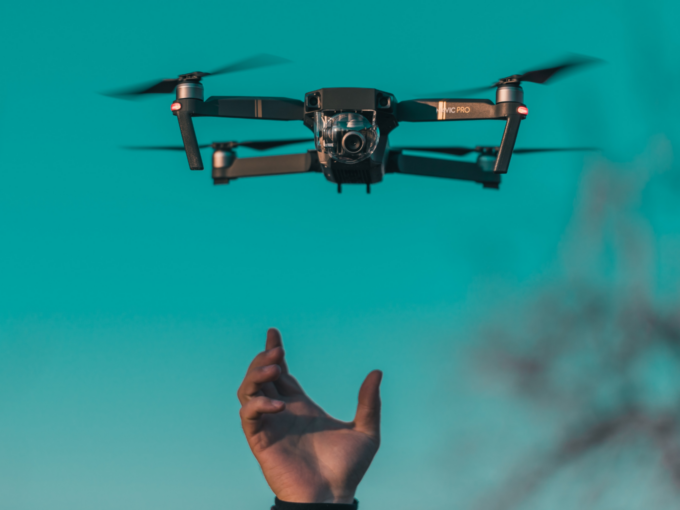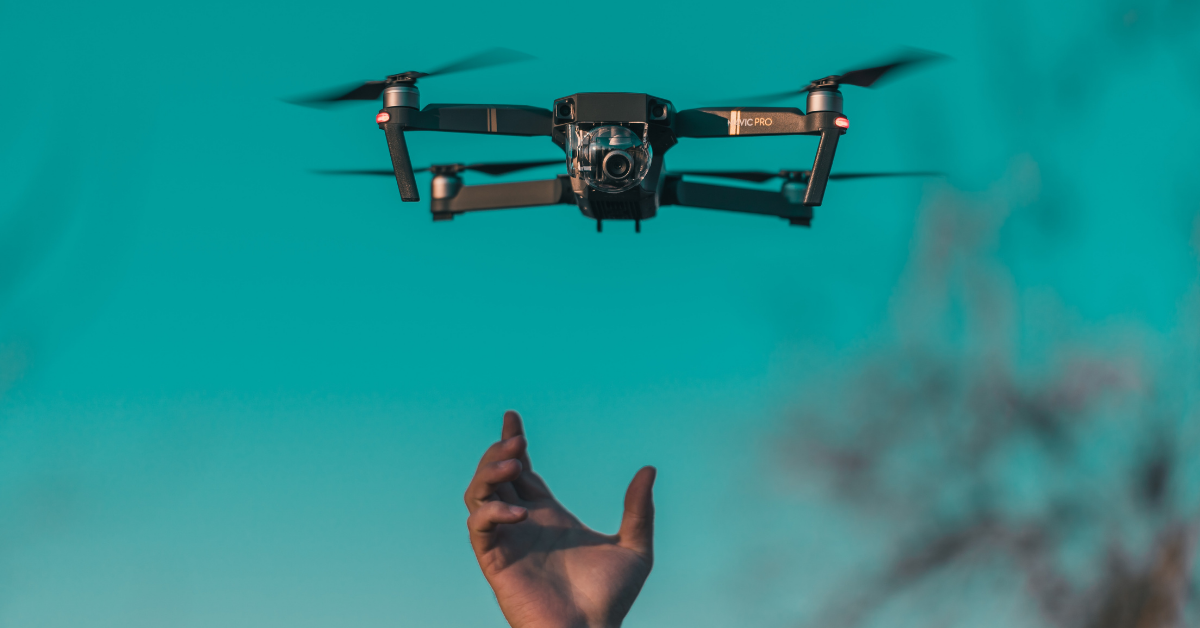The list includes five drone manufacturers and nine drone component manufacturers
It also features startups such as Dhaksha Unmanned Systems, ideaForge Technology and IoTechWorld, as well as Adani Group’s joint venture Adani-Elbit Advanced Systems
The scheme, which was notified in September last year, envisages incentives totalling INR 120 Cr spread over three years for promoting domestic drone manufacturing.

The Ministry of Civil Aviation (MoCA) on Tuesday released the first provisional list of beneficiaries under the Production Linked Incentive (PLI) scheme for manufacturing drones and drone components in the country.
The list includes five drone manufacturers and nine drone component manufacturers. It also features big startups such as Dhaksha Unmanned Systems, ideaForge Technology and IoTechWorld.
Adani-Elbit Advanced Systems, a joint venture between Adani Defence and Israel’s Elbit Systems for developing unmanned aerial platforms, is also amongst the selected beneficiaries.
Others in the list include Bengaluru-based Paras Aerospace, Noida-based Raphe Mphibr, Chennai-based Zuppa Geo Navigation Technologies and Bengaluru-based ZMotion Autonomous Systems.
The list could see more additions in the coming days as more applicants file their full financial year data with the ministry. The final list is likely to be declared by June 30 this year after due scrutiny of documents filed by the applicants.
Last month, the ministry had invited applications from eligible drone manufacturers for the scheme.The firms were asked to submit financial data over a ten-month period from April 2021 to January 2022 before March 31 this year.
The eligibility criteria for the PLI scheme for drones and drone components includes an annual sales turnover of INR 2 Cr for drone companies and INR 50 Lakh for drone components manufacturers, and a value addition of over 40% of sales turnover.
The ‘Drone Hub’ Dream
The scheme, notified in September last year, envisages incentives totalling INR 120 Cr spread over three years to promote domestic manufacturing of drones. The move has specifically been crafted to benefit startups, innovators and R&D institutions to help create niche products for emerging markets.
The Centre has been on an overdrive to bring reforms in the sector. In July last year, it released new drone rules, aimed at liberalising the sector. Later, the MoCA also published the Drone Airspace Map which opened almost 90% of the Indian skies to drone pilots, albeit with certain caveats.
In January this year, the Centre notified the drone certification scheme to spur homegrown drone manufacturing industry and make drone certification simpler, faster and transparent.
It also amended the Drones Rules, 2021, making sweeping changes, including abolishing Remote Pilot License and authorising training schools to issue pilot certificates as well.
In a bid to further boost manufacturing in the sector, the Centre also banned (with certain exceptions) imports of drones in February. The government intends to make India the ‘drone hub of the world’ by 2030.
Red Tape Stifling Growth?
While many have lauded the steps taken by the government for the sector, it still continues to be marred by a host of bureaucratic hurdles. Entrepreneurs in the sector face various issues, including requirement of multiple licences , permits and approvals before they can even begin research on drones.
An earlier Inc42 report found that a startup needs to apply for more than half-a-dozen certificates and permits, including ones for security, insurance and landowner’s permission, for drone startups. The applicant also needs to pay a variety of specific fees that adds to the burden.
Currently, 180 drone startups are operational in the country with as much as $27 Mn raised by them over the years.
Pushing The Envelope
While the regulations in the sector are tightly controlled, Indian startups continue to push the envelope. Big names such as Reliance and Adani have charted out aggressive plans to carve a niche in the sector.
This is in addition to a slew of experiments that startups and other companies have been doing to test the efficacy of drones. Earlier today, Piramal Foundation in collaboration with Redwing Labs piloted drones for faster transportation of samples for screening and diagnosis of tuberculosis in Odisha’s Kalahandi.
At this year’s Wings 2022, MoCA’s event to showcase aviation technologies, many drone technologies were showcased to the general public. These included flight demonstration of National Aerospace Laboratories’ ‘Octacopter drone’.
States like Karnataka, Tamil Nadu, Rajasthan, and Punjab also began testing long-range drone deliveries on a pilot basis in June last year. This was done to test the viability of home deliveries of medicines, ecommerce and food orders using drones.
In December last year, Reliance Jio conducted successful trials of its connected drones on its indigenously built 5G network. Last year, hyperlocal delivery app Dunzo announced plans to test deliveries of medicines through drones in Telangana through a partnership with the state government and the World Economic Forum. In December 2021, logistics startup Delhivery acquired California-based drone startup Transition Robotics for an undisclosed amount.
The country, however, faces tough competition from major players like the US, China and Israel. This was reflected in a July 2021 report by BIS Research which said that the global drone market is estimated to reach $28.47 Bn in financial year 2021-22, with India likely to account for a meagre 4.25% share.


![Read more about the article [Weekly funding roundup] Venture investments into Indian startups decline in third week of August](https://blog.digitalsevaa.com/wp-content/uploads/2021/07/Weeklyimage-1577460362436-300x150.png)






